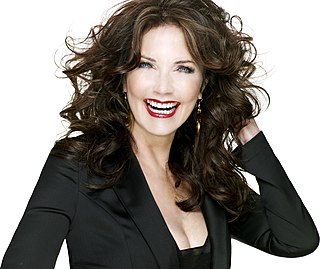A Quote by Ashley Jensen
I think that children that are acting are always pretty savvy anyway because you're conducting yourself around adults a lot of the time, aren't you? But there is this worry now that children just want to be famous.
Related Quotes
Working with children is very different than the way in which I work with adults. I never tell the children the actual truth of the thing that I want them to act. Although children are really into play and play acting, and this is a major part of their existence, they never actually find the playing or acting of adults credible.
Children grow rapidly, forget the centuries-long embrace from their parents, which to them lasted but seconds. Children become adults, live far from their parents, live their own houses, learn ways of their own, suffer pain, grow old. Children curse their parents for their wrinkled skin and hoarse voices. Those now old children also want to stop time, but at another time. They want to freeze their own children at the center of time.
The new concept of the child as equal and the new integration of children into adult life has helped bring about a gradual but certain erosion of these boundaries that once separated the world of children from the word of adults, boundaries that allowed adults to treat children differently than they treated other adults because they understood that children are different.
Until you have a child, it's very tempting to look at the state of the world and say, "To hell with it, in 50 years I won't be around anyway." But if you have a child you don't say that, because even if you're not around in 50 years, your children presumably will be, and maybe even their children. You think of yourself as responsible to future generations in a whole different way.
We moved around a lot at first as a kid, and then I was on the road at 17, and new in town by the time I got to LA, and then famous again with that whirlwind. I did really want substance in my life, and when I stopped with the road for my children, it was really because I didn't want to miss out. It wasn't just selflessness. I didn't want to miss out on that.
Although adults have a role to play in teaching social skills to children, it is often best that they play it unobtrusively. In particular, adults must guard against embarrassing unskilled children by correcting them too publicly and against labeling children as shy in ways that may lead the children to see themselves in just that way.



































